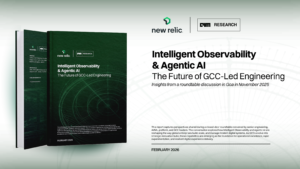In today’s fast-paced business environment, the ability to make data-driven decisions is critical for achieving and maintaining a competitive edge. Despite significant advancements in technology, many organizations still face challenges with traditional business intelligence (BI) tools. These tools often require substantial technical expertise and IT support, creating bottlenecks and limiting accessibility for non-technical users. As a result, vast amounts of data remain underutilized, preventing organizations from fully capitalizing on their data assets. This article explores how AI-enhanced self-service BI tools are transforming the landscape by making data analysis more intuitive, accessible, and efficient for all users.
The Evolution of Self-Service BI: From Static Reports to Dynamic Insights
Initially, BI tools were primarily used to generate static reports. These reports, typically created by IT departments, provided limited insights and required significant technical expertise. This approach often led to delays and a heavy reliance on specialized personnel, restricting the timely access to crucial data insights.
In the early 2010s, BI tools focused on data warehousing and descriptive analytics, which were largely managed by IT professionals. Users had to request data reports, which could take days or even weeks to generate, thereby stifling agility and responsiveness.
The Rise of Self-Service BI
The mid-2010s marked a significant shift with the advent of self-service BI tools. These tools democratized data analytics, making it accessible to non-IT professionals and fostering a data-driven culture within organizations. The adoption of self-service BI tools increased significantly, enabling employees across various departments to engage directly with data. This shift not only improved decision-making but also reduced the dependency on IT departments.
Today, modern self-service BI platforms have evolved to be more user-friendly and interactive, empowering users to explore data, create dynamic dashboards, and generate real-time insights independently. The integration of AI and machine learning (ML) has further enhanced these tools, providing predictive analytics and personalized recommendations. Companies like Tableau and Qlik have been at the forefront of this evolution, continuously innovating their platforms to include advanced features like natural language processing (NLP) and AI-driven insights.
AI Enhancements in Self-Service BI
Natural Language Processing (NLP)
Natural Language Processing (NLP) is a game-changer in the realm of self-service BI. Traditionally, users needed to understand complex query languages and possess technical skills to extract meaningful insights from BI tools. NLP transforms this paradigm by allowing users to interact with data using everyday language, similar to how they would ask questions in a conversation. This makes data queries more intuitive and accessible to a broader audience.
Automated Insights
AI algorithms can automatically detect patterns and anomalies in data, providing users with proactive insights. This means that instead of manually sifting through data to identify trends, the BI tool can highlight significant changes or unusual patterns that can require attention.
Enhanced Data Visualizations
AI-driven visualization tools can automatically choose the best visualization methods based on the data type and user queries. This ensures that the insights are presented in the most understandable and impactful way, facilitating better decision making.
Predictive & Prescriptive Analytics
Self-service BI platforms come with prebuilt predictive algorithms. Users can apply these algorithms to their data to identify patterns, trends, and correlations that can inform future business strategies.
Prescriptive analytics goes beyond predicting what will happen by suggesting actions to take based on predictive insights. Self-service BI tools can translate complex data analysis into clear, actionable recommendations that users can easily understand and implement. Self-service BI tools often include scenario analysis capabilities, allowing users to simulate different business scenarios and evaluate potential outcomes of various decisions. This helps in identifying the best course of action under different circumstances/
Challenges
Data integration & quality: Sources with varying formats can be complex; use robust data integration tools and conduct regular data quality audits to ensure consistency.
Data security & privacy: Protecting sensitive financial data from breaches is critical; implement strong encryption, access controls, and continuous monitoring to safeguard data.
User adoption and training: Ensuring user proficiency with self-service BI tools can be challenging; provide comprehensive training, ongoing support, and design intuitive interfaces to enhance user experience.
Data Governance: Maintaining consistent data policies and integrity while allowing widespread access can be difficult.; Establish clear data governance frameworks and regularly update policies to ensure data accuracy and compliance.
The Impact on Business Operations
Implementing self-service business intelligence with real-time financial data can significantly improve risk management in organizations. By providing immediate access to up-to-date financial metrics and market trends, financial analysts can detect and respond to potential risks more swiftly. This proactive approach can reduce the time to identify risk exposures from days to minutes, enabling quicker decision-making and more effective risk mitigation strategies. Consequently, institutions can save on financial losses due to enhanced risk assessment and management capabilities.






